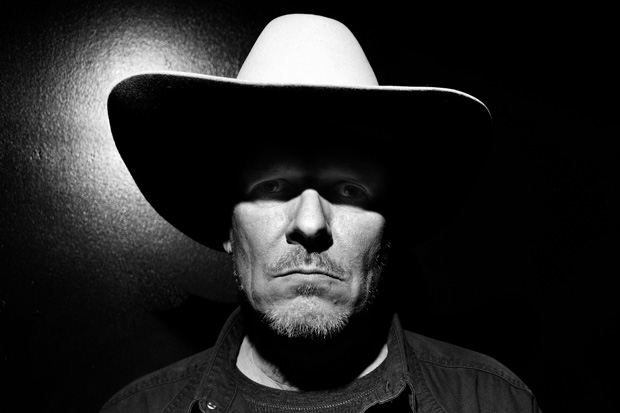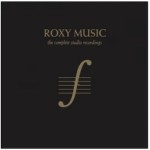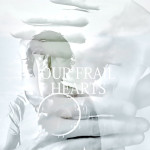It’s almost impossible to imagine the current state of experimental, extreme and downright brutalist, rulebreaking, genre-defying fuck-you music without the influence of Michael Gira. In his first incarnation as Swans in the eightites and early nineties Gira travelled from psychotic anti-metal (no jock bullshit on the likes of ‘Cop’ that’s for sure) through to dreamlike incantations via the ethereal goth influence of Gira’s partner of the time, Jarboe. When Gira declared ‘Swans
Are Dead’ on their 1998 live album and switched tack to his Angels of Light project it seemed safe to assume that Swans would be a band who would glow and reverberate in legend, never to be disinterred.
Since the statement on the Young God Records label website in 2010 declaring ‘SWANS ARE NOT DEAD’ we’ve seen a resurrection like no other – Gira and his reformulated band releasing two albums, 2010’s ‘My Father Will Guide Me Up A Rope To The Sky’ and this year’s critically championed ‘The Seer’ as well as upping the ante on their mesmeric 2-hour-plus live shows to a previously uncharted level.
25 minutes on the ‘phone isn’t enough time to discuss as intricate and influential a career as Michael Gira has had but, as ever, GIITTV endeavored to get as much as we could from this New York gentleman – a warm and intelligent interviewee who seems almost as keen to debunk the myths that surround him as he is to propagate Swans as a vital and challenging musical force.
MH: Congratulations on ‘The Seer’ – the critical response has been amazing.
Did you expect that kind of response and does it matter to you?
MG: Of course I didn’t expect it but it matters, it’s comforting. It’s a bit disturbing (laughs). It was unexpected to get this volume of press coming in. Then you’re tempted to read it and if you do you feel really uncomfortable. So, I stopped reading it. I work hard and I’m no stranger to obscurity or even failure.
MH: So the praise doesn’t sit all that comfortably with you then?
MG: Well it means that I can keep working.
MH: I’d like to talk a little bit about Young God, your label. You’ve turned Swans into a self-sufficient cottage industry. Do you see this as the best or even the only way for a band to survive nowadays?
MG: I can’t really speak for anyone else in the music industry as I haven’t really had that much to do with it for a number of years. But I guess I’m a fairly resourceful individual, I’ve figured out how to survive making music. I look at it like when I used to paint houses for a living. You figure out how much the materials cost, and how much you can charge and how much money you can make to live or to keep doing the work…so that’s what I do. I don’t get involved in too much fluff. It’s just about being able to make a living.
MH: So you’ve been using limited edition runs of material to fund the major releases. Why do you prefer that over other forms of crowdsourcing?
MG: Why get involved in Kiskstarter if I can do it myself? I’ve been doing that for ten or eleven years now though. I started doing it with Angels of Light a long time ago. Just basically connecting directly to the fans, I guess you could say the hardcore fans. It’s just one way of trying to keep going.
MH: And operating outside the industry – is that a freeing experience to you considering the experiences you’ve had with labels in the past?
MG: Well I’ve had a very rocky relationship with other labels. I started Young God Records in 1989 because of that. I’ve been…well, I have had to borrow money (laughs) but I’ve been self-sufficient since then. I can’t blame the other labels. I wasn’t a very easy person to deal with.
MH: Am I right in saying you have final word, final cut and that there’s no censor between you and the audience?
MG: There is no censor. This album was going to be much longer. It ended up being a 3 CD double LP but I thought at one point it might only be possible to have it as a digital download because it was going to be so long. It’s just how it
ended up…I ran out of money, time and stamina…
MH: Is that something we might find from you in the future? A record of such length that you can only release it digitally?
MG: I don’t think I’ll have that in me for a while (laughs)
MH: So is there new material being played in the current shows?
MG: Yeah. Three songs that are over an hour. We play three songs from the album and we’re playing an old song called ‘A Coward’. I like that song because it’s sort of non-musical, it’s just chunks of sound and rhythm and some guys grunting.
MH: That sort of thing appeals to you at the moment then?
MG: Well, it’s moment of respite in the set, it’s so sparse. The set is about two hours but it’s gone longer, it’s gone two and a half hours sometimes. It’s kind of a pleasurable ordeal.
MH: Do you see a divide between band and audience or do you see it as more of a communal experience when you play live?
MG: It’s a shared environment in which we’re all living at that moment and at the best of times it has its own life where we’re riding the tsunami just like everyone else. But the goal is just to try to reach that point where you’re helpless and you’re inside it. It takes a lot of concentration to reach that point and we don’t always make it but the audience comes along for the ride. I love our fans, I want to marry them. I like to talk to people. I talk to people after the show and I’ll go to the merch table and talk to people. It’s very gratifying to see that the music’s meant something to them. It is. I respect that tremendously.
MH: Does that ever get a little bit too much for you? The proclamations of undying love?
MG: No, the best times are when people are very adult and frank about what the music has meant to them and which they love. And then there’s the stutterers who are like ‘M-m-m-m-Michael’ …(laughs) I don’t understand that but it’s fine.
MH: Let me draw a comparison between yourself and someone like David Lynch – independent, auteur, thematically maybe you are interested in similar ideas?
MG: I don’t know about his ideas. It’s hard to figure out what his ideas are. His films are certainly sometimes engaging. As far as being an auteur in a way I do look at making records as being like filmmaking. I like to make records that are like films, something you can completely lose yourself in. That requires a commitment from the listener, the audience. Being a producer of sorts I suppose that’s my role. I’m kind of like a filmmaker in a way. I’m not really interested in taking a picture of a band in a room basically ‘oh this is how they sounded’. I’m interested in creating a world.
MH: I saw you mention previously that you’d be happy for a filmmaker to come along and offer you a soundtrack – why couldn’t you be that filmmaker?
MG: (laughs) I think making films is a rather complicated endeavor. I certainly don’t have the time to learn or throw myself into something like that. I think it would be a tremendous act of hubris. I can’t really do much outside of the life I have right now – I work, I have two children I adore. I’m touring constantly, working constantly there’s just no time for something like that. Just because I make records I think it would be preposterous to think I could make a film. It’s something that’s living and breathing, you’ve got to work your way into it slowly and understand it completely. It’s like if I just said ‘I think I’ll be a famous author’. I’m in the world I’m in you know? I don’t know if I’m happy with it. But I’m in it.
MH: One of the reasons I bring up David Lynch is because of his interest in Transcendental meditation. The reason I ask about that is because of the level of spirituality I hear in your music…
MG: Oh , thank you thank you for noticing that. It really means a lot. This whole concept of us being this dark thing? I’ve actually meditated in the past. Now I’m resigned…music is my form of religious practice, spiritual practice.
MH: Does it feel similar?
MG: Well I think at certain points it is. It’s an act of discovery and loss simultaneously.
MH: You could see your music as similar to incantations performed by monks, witches even…do you ever see yourself in that role?
MG: Nah, that would be a bit much (laughs). You know, we’re a rock band but if you picture Neu! they reached a pretty high point. I mean our music’s obviously different but amplified guitars and repetition can open up doors to the pre-conscious mind.
MH: There was a sect that used endurance rhythm repetition to reduce the distance between themselves and God…has that ever crossed your mind?
MG: I hadn’t thought of it that way, but I use the tantric sex analogy. The slow building of energy and it’s not really about gratification. It’s not like a selfless act but it’s more like releasing the potential – finding and losing yourself simultaneously. It’s not just loud and repetitive though– there are also songs on the album!
MH: Your live show – it’s renowned for it’s volume, length, heat – the shows are notorious. Is that pleasing to you?
MG: I think in particularly in your land of origin there’s a tendency towards hyperbole and that whole misconception…that harping on that one aspect of the band? Well, the music is loud. The guitars don’t sustain and you don’t feel the rhythm enough unless it’s at a certain level. It’s not about attacking people. It’s just a kind of function of the kind of sound I want to be inside, the environment we want to make as a group. I guess it’s extreme but I think it’s incredibly blissful and special.
MH: People seem to come out of the shows at least temporarily altered by the experience they’ve had with you. Is that a conscious thing?
MG: You can’t think that. You’d be thinking of yourself as way more important than you actually are. But there is the potential that the music will reach high places. That’s where we want to go, but I’m not some kind of shaman or something. We’re six working guys trying to make something brilliant happen. And there are some nights when it doesn’t actually…
MH: So you have shows where you come off thinking ‘It didn’t get where we wanted it to go tonight’?
MG: Oh yeah. We just did some shows in Eastern Europe. There were a couple that were absolutely awful. The set lasted barely over an hour. There was one I gave up and walked off stage I was so embarrassed (laughs). We were all sick and I couldn’t hear anything ‘cos I’d been flying with a cold. It was just horrible. In fact at another show Jon Spencer Blues Explosion went on before us and blew us away (laughs heartily).
MH: I refuse to believe that…
MG: (laughs) I thought he was great. He was a great showman.
MH: The experience you go through every night – when you come offstage and it’s gone right do you need a cooling off period to come back to reality?
MG: I think that’s too grandiose. I’m just tired. It’s good exercise.
MH: You took a lot of LSD as a teenager. Would you tell us a little bit about how your childhood led you to that and how your drug experiences affected you as a songwriter? I read that you had an epiphany at a Pink Floyd concert, is that right?
MG: I took LSD at an extremely young age – I imagine my DNA has been altered. I was taking LSD a lot at 12 and 13 and carried on for a couple of years so, hundreds of trips as they say…but I saw Pink Floyd during the ‘Ummagumma’ era and just previous to the ‘Live At Pompeii’ thing they did. It was a pretty amazing experience and I thought about it for years. I didn’t really incorporate the notion of music being that way until the late ‘90s. But that’s an inspiration. Not that I want to sound like Pink Floyd but the idea of the ever-rising
crescendo? It was amazing to witness and to be inside of.
MH: Last question – You are at a highpoint in popularity now – do you feel at the top of your game? Is this the best Swans have ever been?
MG: Yeah, this group is the most cohesive group but I can’t say the best. I can’t judge that. But we get along great and we’re all committed to making it happen.
Swans upcoming EU dates:
15-Nov London, Koko [UK]
16-Nov Glasgow, The Arches [UK]
17-Nov Manchester, Sound Control [UK]
19-Nov Paris , Le Trabendo [FR]
20-Nov Nijmegen, Doornroosje [NL]
21-Nov Haarlem, Patronaat [NL]
22-Nov Hamburg, Kampnagel [DE]
23-Nov Copenhagen, Det Kgl. Danske Konservatories Koncertsal [DK]
24-Nov Oslo, Parkteatret [NO]
27-Nov Prague, Lucenra Music Bar [CZ]
28-Nov Vienna, Arena Big Hall [AU]
30-Nov Bologna, Locomotiv [IT]
02-Dec Kortrijk, De Kreun- Sunns curator festival [BG]
03-Dec Bern, Reitschule Gross Halle [CH]
04-Dec Lausanne, Les Docks [CH]




